Tiantian Liang
SPGL: Enhancing Session-based Recommendation with Single Positive Graph Learning
Dec 16, 2024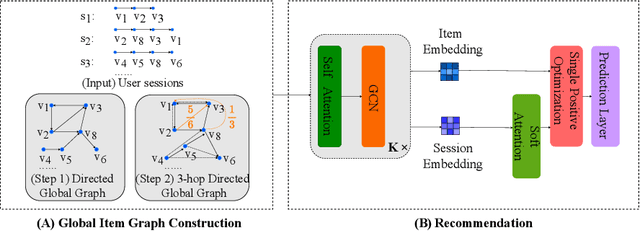

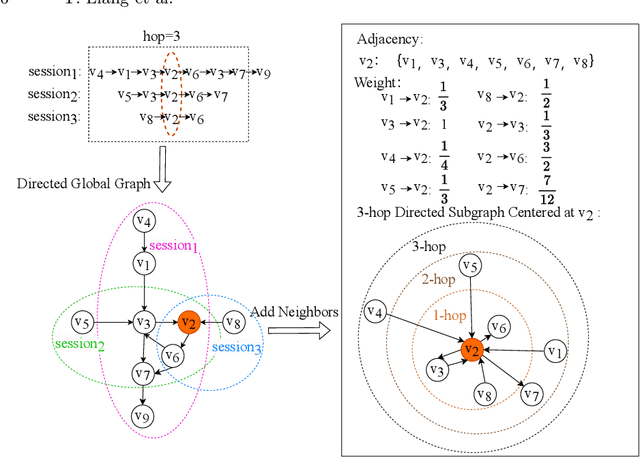
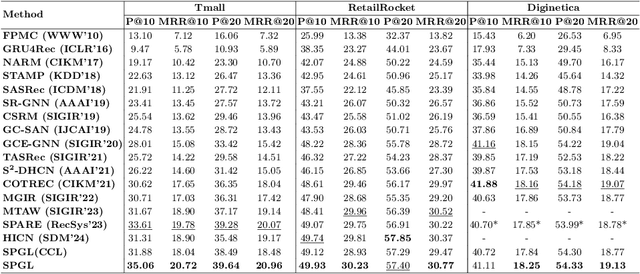
Abstract:Session-based recommendation seeks to forecast the next item a user will be interested in, based on their interaction sequences. Due to limited interaction data, session-based recommendation faces the challenge of limited data availability. Traditional methods enhance feature learning by constructing complex models to generate positive and negative samples. This paper proposes a session-based recommendation model using Single Positive optimization loss and Graph Learning (SPGL) to deal with the problem of data sparsity, high model complexity and weak transferability. SPGL utilizes graph convolutional networks to generate global item representations and batch session representations, effectively capturing intrinsic relationships between items. The use of single positive optimization loss improves uniformity of item representations, thereby enhancing recommendation accuracy. In the intent extractor, SPGL considers the hop count of the adjacency matrix when constructing the directed global graph to fully integrate spatial information. It also takes into account the reverse positional information of items when constructing session representations to incorporate temporal information. Comparative experiments across three benchmark datasets, Tmall, RetailRocket and Diginetica, demonstrate the model's effectiveness. The source code can be accessed on https://github.com/liang-tian-tian/SPGL .
Multi-Graph Co-Training for Capturing User Intent in Session-based Recommendation
Dec 15, 2024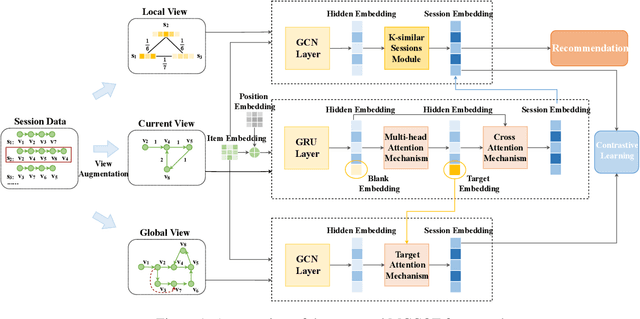

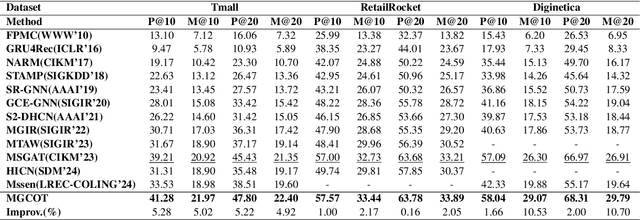
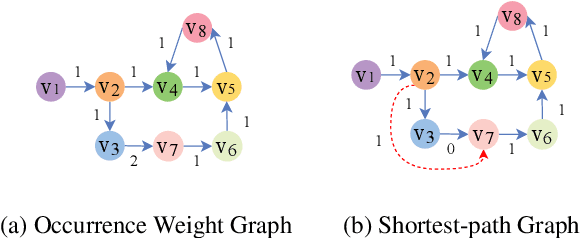
Abstract:Session-based recommendation focuses on predicting the next item a user will interact with based on sequences of anonymous user sessions. A significant challenge in this field is data sparsity due to the typically short-term interactions. Most existing methods rely heavily on users' current interactions, overlooking the wealth of auxiliary information available. To address this, we propose a novel model, the Multi-Graph Co-Training model (MGCOT), which leverages not only the current session graph but also similar session graphs and a global item relation graph. This approach allows for a more comprehensive exploration of intrinsic relationships and better captures user intent from multiple views, enabling session representations to complement each other. Additionally, MGCOT employs multi-head attention mechanisms to effectively capture relevant session intent and uses contrastive learning to form accurate and robust session representations. Extensive experiments on three datasets demonstrate that MGCOT significantly enhances the performance of session-based recommendations, particularly on the Diginetica dataset, achieving improvements up to 2.00% in P@20 and 10.70% in MRR@20. Resources have been made publicly available in our GitHub repository https://github.com/liang-tian-tian/MGCOT.
 Add to Chrome
Add to Chrome Add to Firefox
Add to Firefox Add to Edge
Add to Edge